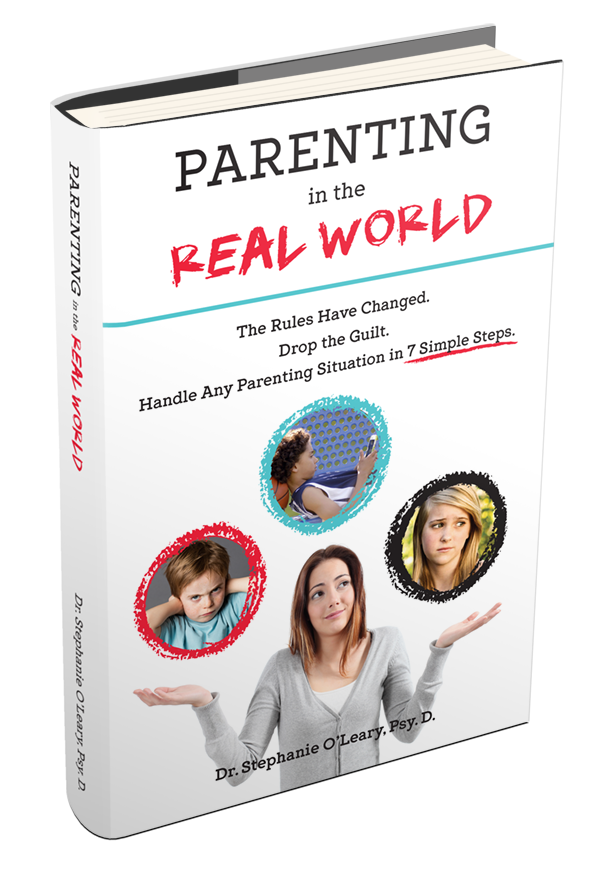|
By Stephanie O’Leary, Psy.D., Like everything else in this world, parenting is a job that has its ups and downs. There are moments of joy when the job perks are crystal clear, and other times when it seems that things are completely out of control. At the end of the day, it's likely that parent expectations factor into the equation and contribute to these highs and lows. The good news here is that every mom, dad and caregiver can take stock, re-evaluate, and fine tune their expectations to minimize disappointments and shift toward successful outcomes. One thing to consider is that parenting is not a “one size fits all” endeavor. Children are born with their own “big” personalities that must be taken into account when developing expectations. For example, some children tend to be more self-directed while others need prompting and redirection in order to accomplish even the simplest things. In addition, every child reacts differently to caregiver’s responses. Some do best when you to increase the volume of your voice while others may perceive you to be shouting even before you open your mouth or utter a word. So, what do you do? The key here is to stop and take a minute to evaluate your child’s strengths and challenges. Then, try to alter your expectations accordingly. If you are trying to teach personal responsibility and also want your son or daughter to keep their room neat, you could ask them to take care of certain cleaning and rearranging tasks as soon as they come home or allow them to wait until later in the evening. If your child is often tired, easily frustrated, and prone to tantrums upon arriving home for the day, it may work better for them to have some time to relax before beginning chore-like tasks. Alternately, if bed-time is more of a challenge, getting daily responsibilities out of the way earlier may pave the way for a more stress-free evening. Another important factor regarding expectations is to keep in mind your child’s developmental level. For example, younger children will naturally require a high degree of one-to-one attention and direction in order to carry out activities including simple clean-up tasks. While you assist your young child with picking up their toys, you may be doing the bulk of the work, but you are also modeling how to persevere and succeed. As your son or daughter matures, you can slowly adjust your expectations until they are more independent. It is important to remember that each new responsibility will have some degree of a learning curve, and if things are not moving smoothly that may be your first clue that more guidance and attention is required. When all is said and done, if you find yourself in the midst of a desperate parenting moment, stop and ask yourself “What do I expect right now?” This seemingly simple question can shed a great deal of light on situations, and will hopefully help you and your children experience more smooth sailing and quicker course corrections to get things back on track.
0 Comments
The term “Positive Parenting” has such a lovely ring; however, translating these simple words into practice is not always easy. Most caregivers have received advice or read their fair share of books on various parenting techniques covering topics from sleep to behavior and everything in between. But on a daily basis, it comes down to more of an art than a science as there is seldom one system or approach that produces fool-proof results. Here are some general themes to keep in mind as you navigate the parenting world while trying to put your most positive foot forward.
1. Don’t Overdo It. This common motto applies to most aspects of life, including parenting. Sometimes becoming too focused on specific behaviors, goals, approaches, or expectations can lead to undue stress and frustration, for both you and your child. If you are at a loss, choose one thing to focus on and move forward with reasonable expectations. This will set both you and your child up for success rather than overwhelm you with unrealistic demands. 2. Praise Mindfully. It is important to balance other parenting strategies, including use of praise. Researchers have found that children who are frequently praised for the outcome of their efforts (“We are so proud that you got an A!”) or for personal characteristics (“You are so smart”) actually give up more easily. In contrast, children who receive praise for their effort (“I am proud of how hard you worked”) and the approach they take (“I like the way you thought of that answer”) tend to press on in the face of a challenge. Simple changes in your language can go a long way in fostering your child’s ability to persevere and tolerate frustration. 3. Have Fun. There is nothing positive about a joyless household, and childhood is supposed to be a time of fun-loving wonder and excitement. While there are also countless responsibilities, rules, and boundaries that must be tended to, be sure to schedule time for laughter, physical activity, and shared enjoyment. These moments will hopefully spill over into daily life when demands are more intense and children (and parents) need relief from stress and monotony. 4. Communicate. At least once a day take 5 minutes to have a real conversation with each child. Here, “real” refers to a discussion without expectations, judgments, or any agenda. This opportunity to genuinely connect will make it easier to take your child’s experiences and needs into consideration, and will guide your parenting approach. Again, positive parenting is an excellent concept to aspire to, but it is a perpetual work in progress. In addition, it should not be a source stress in a world that already provides penalty of pressure. Hopefully these tips will help you approach each day with a bit more direction as you strive to keep things moving in a positive direction. |
Stephanie O'Leary, Psy.D.
Sharing practical strategies that help parents rediscover joy in their children (even when someone's crying, the phone is ringing, and it smells like the house may be burning down) Archives
October 2017
Categories |


 RSS Feed
RSS Feed